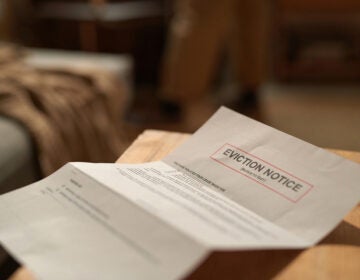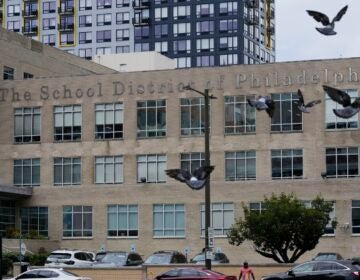8th District question: How to reduce abandoned properties
This is the fourth of 10 questions about issues and priorities that NewsWorks asked the seven Democratic candidates running for the Eighth District City Council seat. The questions were drafted by voters who attended NewsWorks forums earlier this spring. Their answers will appear on NewsWorks.org during the week, two questions per day.
We will be running the candidates’ answers to questions 5 and 6 on Wednesday.
What as a council member would you do to assist residents of blocks plagued by abandoned or vacant buildings?
GREG PAULMIER:
Immediately implement the program of economic development tested by my 30 years experience creating jobs through renovating abandoned houses into homes that are growing the tax base and giving neighbors the tools to address this community crisis.
ROBIN TASCO:
I will push for legislation to streamline the process for acquiring and distributing abandoned houses in the District. I will advocate for assigning no more than two city agencies to handle the process from start to finish. I also pledge that this process in the 8th District will be open and fair.
HOWARD TREATMAN:
My private-sector real estate experience will be a valuable asset to our district when it comes to solving the problem of vacant properties. In cases where abandoned buildings are owned by individuals, I will work with the city to more aggressively pursue tax liens and enforcement of code violations so we can take control of the properties and address dangerous conditions. In the case of city-owned properties, the key is to assemble the lots, effectively market them to buyers, and cut the red tape that is standing in the way of sales. But the first step is to improve the accuracy and thoroughness of our lists of abandoned properties.
VERNA TYNER:
The 8th District has more than its share of blighted and abandoned lots, and we as a community must get creative if we’re going to revitalize these areas. For example, I recently organized a tour of the Tioga neighborhoods’ assets and development opportunities which was attended by around 100 potential investors. Our efforts resulted in an infusion of cash, economic activity and jobs into our area – and can be replicated throughout the district. Secondly, Tioga United, a successful neighborhood organization I helped co-found, recently launched a $3 million rehabilitation project that has resulted in the construction of six new homes. Our organization could share our blueprint for this program with our 8th District neighborhood groups. Finally, I have called for a more focused and extensive volunteer effort to be organized throughout the district. Alongside my neighbors and friends in Tioga, I have worked to clean and green more than 200 vacant lots. I would work to replicate that community effort in other neighborhoods – creating a more sustained service initiative in the spirit of Dr. Martin Luther King (and one that lasts much longer than a single day).
CINDY BASS:
At the local level, I will work with residents of blocks plagued by abandoned buildings to help alleviate the problem. I will foster an environment that encourages community involvement and provide incentives (through legislation) for local r-investment (whether it is tax incentives or aid in navigating the City’s process). On a City level, I will work with the RDA in order to assist them in acquiring and disposing of property in a responsible, transparent and efficient manner. At the State level, I will support Land Bank legislation. Land banks are public entities created to acquire, manage, and transfer ownership of tax-foreclosed properties not reclaimed or redeveloped by market forces. Land banks facilitate the properties’ productive reuse through sales and transfers to city agencies, community development corporations, private developers, and adjacent property owners. There are many neighborhoods that could benefit from such legislation in an economic, neighborhood strengthening, and crime preventing manner.
BILL DURHAM:
I would research who owns the building and let them know that they have X amount time to clean up their property. If not I would explore having a company do the work necessary and bill the owner. I will with my staff explore every possibility.
ANDREW LOFTON:
I would enact a plan to eliminate the multitude of blight issues in our communities by holding land bankers or speculators accountable for condition of their properties, by making it costly for them to hold on to properties without maintaining them. Additionally, I would propose rehabbing a percentage of properties already in city inventory using labor from community specific training programs and then create long term leasing agreements with Grands as Parents or those in need of transitional housing. The leasing or rental amount would be based on 1.5x the tax assessment. Then I would look to further energize the neighborhoods with the development of specialized commercial corridors based on the needs and existing infrastructure of the neighborhood. Also, while working with the community council we would assess which community organizations may be able to benefit from using some of the existing structures.
Tomorrow we’ll hear from the candidates on how they would ensure transparency in future development projects that involve public funds and if they support term limits for council members.
WHYY is your source for fact-based, in-depth journalism and information. As a nonprofit organization, we rely on financial support from readers like you. Please give today.




